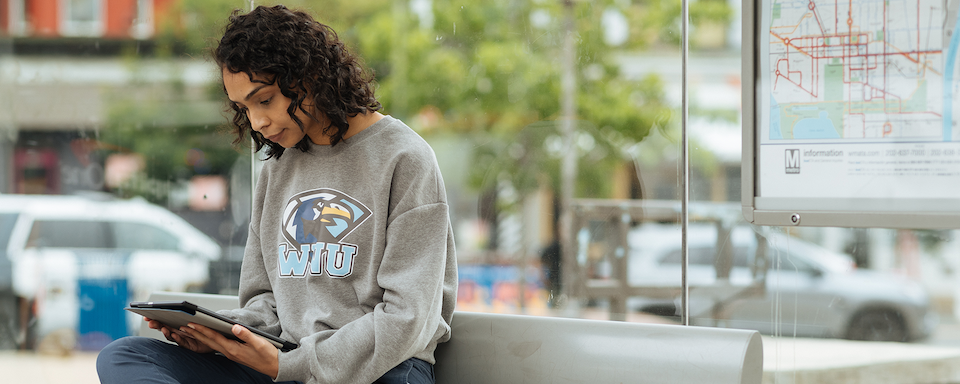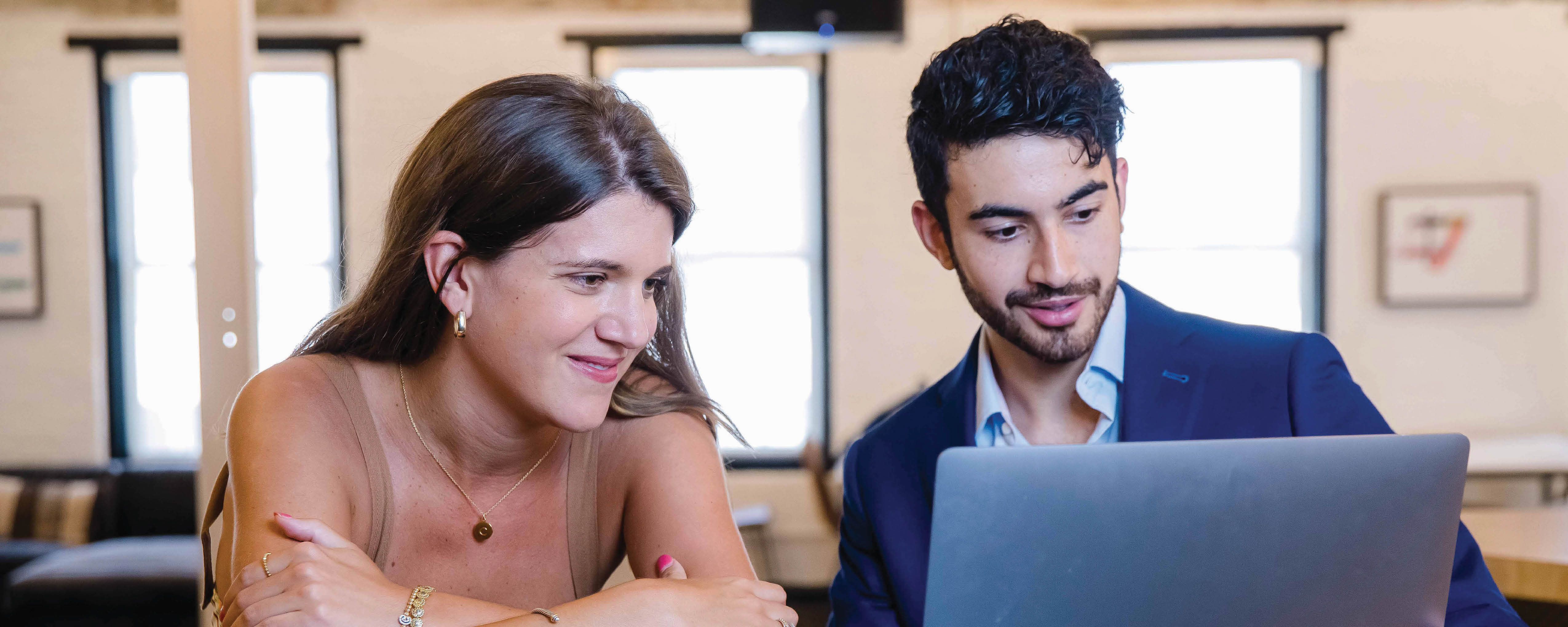Student & grad application questions, answered
We want to make navigating our Students & Grads Programs as easy as possible.
So we answered some of your top questions about our application process, from finding the right program, to what happens when you hit apply, to the different types of interviews.Is the entire interview process virtual?
Yes. Given the success of our virtual interviewing model, and the flexibility it allows for both interviewers and candidates, we continue to use virtual interviewing. When your program starts, you’ll follow our hybrid working model.
What happens when I submit an application?
Once you submit an application to a program that matches your interests and skills, a recruiter will review your information and get in touch if your experience meets our requirements. Be open and communicate with your recruiter. They’ll be your guide through the entire process, answering questions and helping you understand our interview structure.
What do the initial conversations look like?
The next part of the application will vary depending on the program. Some programs require an initial conversation with recruiters, others have an online assessment that must be completed before interviews. The assessment is a chance for us to learn about your background, strengths and approach to work while giving you insight into the associate life at Capital One. The programs requiring online assessments are:- Analyst Development Program & Internship
- Machine Learning Development Program
- Technology Development Program & Internship
Some programs require a first round interview with a recruiter or hiring manager. These interviews vary by program, and your recruiter will provide more information on what to expect. The programs that require a first round interview are:
- Commercial Rotation Program & Internship
- Design Development Program & Internship
- Finance Rotation Program & Internship
- Investment Banking Development Program & Internship
- Management Rotation Program & Internship
- Product Development Program & Internship
What do final-round interviews look like?
The last step of the process is the Power Day, a series of interviews about you and the skills and insights you bring to your work.Behavioral interviews assess competencies, meaning they evaluate how you handled a particular experience. These questions typically follow the format of, “Tell me about a time when…” The following programs require behavioral interviews:
- Capital One Developer Academy
- Commercial Rotation Program & Internship
- Cyber Security Development Program & Internship
- Design Development Program & Internship
- Finance Rotation Program & Internship
- Investment Banking Development Program & Internship
- Machine Learning Development Program
- Management Rotation Program & Internship
- Strategy Consulting Program & Internship
- Technology Development Program & Internship
A case interview is when we present you with a hypothetical scenario and objective that is similar to the work you’ll encounter in your role. The following programs require case interviews:
- Analyst Development Program & Internship
- Capital One Developer Academy
- Commercial Rotation Program & Internship
- Cyber Security Development Program & Internship
- Finance Rotation Program & Internship
- Machine Learning Development Program
- Management Rotation Program & Internship
- Product Development Program & Internship
- Strategy Consulting Program & Internship
- Technology Development Program & Internship
Job fit interviews assess your aptitude for the role, team and Capital One culture. The following programs require job fit interviews:
- Capital One Developer Academy
- Commercial Rotation Program & Internship
- Design Development Program & Internship
- Finance Rotation Program & Internship
- Investment Banking Development Program & Internship
- Management Rotation Program & Internship
Technical interviews assess your technical skills as they relate to the program. The following programs require technical interviews:
- Cyber Security Development Program & Internship
- Machine Learning Development Program
- Technology Development Program & Internship
Additional specialized interviews may be required for certain programs. Click here for more information about our interviews.
When will I find out about an offer?
After meeting with all the qualified candidates who apply to our programs each year, we try our best to get back to you with a decision quickly—most often, you’ll hear a decision from your recruiter within two weeks.Any final tips?
Stay positive, and try not to let the application and interview process stress you out. Your recruiter is a valuable resource who can answer questions about the process, assist you in preparing for your interviews and connect you with upcoming Capital One-hosted events that you can attend. Finally, remember you’re evaluating us too!You can find events related to Students & Grads here. Find additional information about working at Capital One and tips for applying on our Careers Blog.
Related Content
-

7 resume tips for students and recent grads
Use these seven tips from recruiters to help your resume stand out when applying to a Students & Grads program.
-

How to gain job experience while still in school
Learn Capital One recruiters’ tips on how students can find career opportunities and experiences to build out their resume.
-

7 tips for students & grads applying to Capital One
Use these seven tips from recruiters to find the right Student and Grads program, nail the interview and thrive during the application process.
Student & Grad Jobs
Copyright © 2026 Opinions are those of the individual author. Statements are deemed accurate at the time of posting. Unless otherwise noted, Capital One is not affiliated with, or endorsed by, any company mentioned. All trademarks and intellectual property used or displayed are the property of their respective owners.

